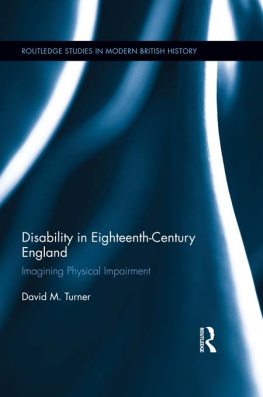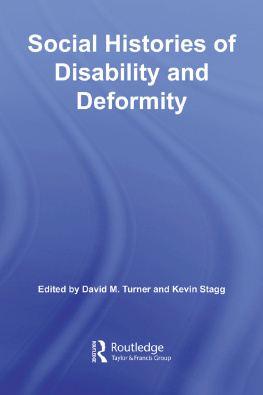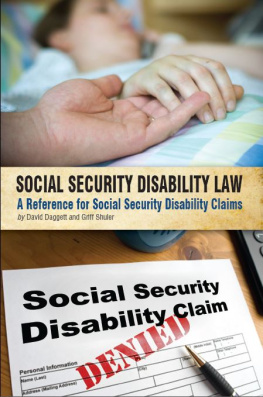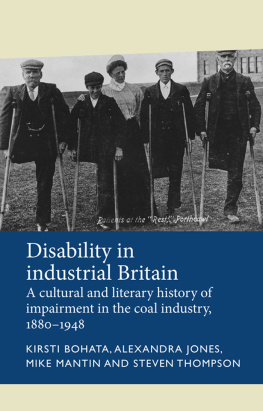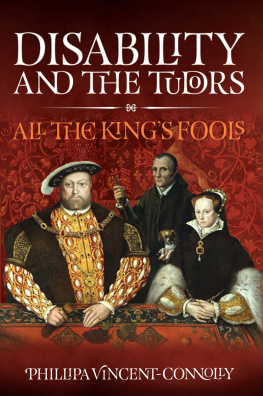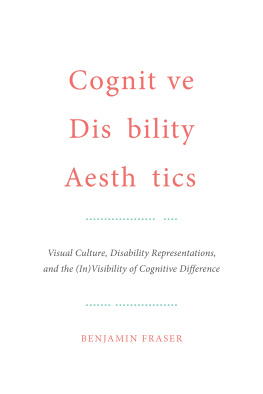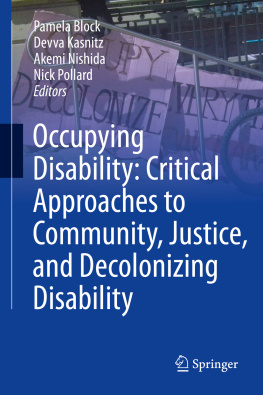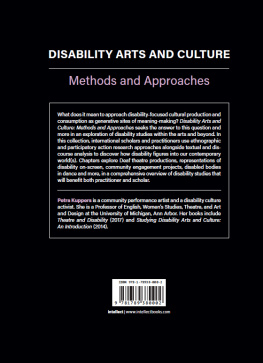Disability in Eighteenth-Century England
This is the first book-length study of physical disability in eighteenth-century England. It assesses the ways in which meanings of physical difference were formed within different cultural contexts, and examines how disabled men and women used, appropriated, or rejected these representations in making sense of their own experiences. In the process, it asks a series of related questions: what constituted disability in eighteenth-century culture and society? How was impairment perceived? How did people with disabilities see themselves and relate to others? What do their stories tell us about the social and cultural contexts of disability, and in what ways were these narratives and experiences shaped by class and gender? In order to answer these questions, the book explores the languages of disability, the relationship between religious and medical discourses of disability, and analyses depictions of people with disabilities in popular culture, art, and the media. It also uncovers the hidden histories of disabled men and women themselves drawing on elite letters and autobiographies, Poor Law documents and criminal court records.
David M. Turner teaches History at Swansea University. His previous publications include Social Histories of Disability and Deformity, co-edited with Kevin Stagg (Routledge, 2006).
Routledge Studies in Modern British History
| 1 | Violence and Crime in Nineteenth-Century England
The Shadow of our Refinement
J. Carter Wood |
| 2 | Revolutionary Refugees
German Socialism in Britain, 184060
Christine Lattek |
| 3 | Marxism in Britain
Dissent, Decline and Re-emergence 1945c.2000
Keith Laybourn |
| 4 | The Victorian Reinvention of Race
New Racisms and the Problem of
Grouping in the Human Sciences
Edward Beasley |
| 5 | Origins of Pan-Africanism
Henry Sylvester Williams, Africa, and the African Diaspora
Marika Sherwood |
| 6 | Statistics and the Public Sphere
Numbers and the People in Modern Britain, c. 18002000
Edited by Tom Crook and Glen OHara |
| 7 | Public Health in the British Empire
Intermediaries, Subordinates, and the Practice of Public Health, 18501960
Edited by Ryan Johnson and Amna Khalid |
| 8 | Disability in Eighteenth-Century England
Imagining Physical Impairment
David M. Turner |
First published 2012
by Routledge
711 Third Avenue, New York, NY 10017
Simultaneously published in the UK
by Routledge
2 Park Square, Milton Park, Abingdon, Oxon OX14 4RN
Routledge is an imprint of the Taylor & Francis Group, an informa business
2012 Taylor & Francis
The right of David M. Turner to be identified as author of this work has been asserted by him in accordance with sections 77 and 78 of the Copyright, Designs and Patents Act 1988.
All rights reserved. No part of this book may be reprinted or reproduced or utilised in any form or by any electronic, mechanical, or other means, now known or hereafter invented, including photocopying and recording, or in any information storage or retrieval system, without permission in writing from the publishers.
Trademark Notice: Product or corporate names may be trademarks or registered trademarks, and are used only for identification and explanation without intent to infringe.
Library of Congress Cataloging-in-Publication Data
Turner, David M., 1972
Disability in eighteenth-century England : imagining physical impairment/by David M. Turner. 1st ed.
p. cm. (Routledge studies in modern British history ; 8)
Includes bibliographical references and index.
1. People with disabilitiesGreat BritainHistory18th century. I. Title.
HV1559.G7T87 2012
305.9'08094209033dc23
2011048306
ISBN13: 978-0-415-88644-4 (hbk)
ISBN13: 978-0-203-11754-5 (ebk)
Typeset in Sabon
by IBT Global.
To Carys
Figures
Abbreviations
| EE | Electronic Enlightenment , ed. Robert MacNamee et al. Vers. 2.1. University of Oxford 2010, . |
| JJC | Bodleian Library, John Johnson Collection. |
| LL | London Lives 1690 to 1800 , accessed between 15 and 30 November 2010. |
| OBP | The Proceedings of the Old Bailey, 16741913, accessed between 4 July 2005 and 2 November 2010. |
| ODNB | Oxford Dictionary of National Biography , Oxford University Press, Sept 2004; online ed., May 2008 . |
Acknowledgments
This book consolidates my research of the last ten years into disability history, which originally stemmed from a conference, Controlling Bodies: The Regulation of Conduct 16502000, which I organised with Kevin Stagg at the University of Glamorgan in 2002. Discussions about Disability Studies after the conference with David T. Mitchell and Sharon L. Snyder ignited my interest in the subject and led to an edited collection of essays, Social Histories of Disability and Deformity , published by Routledge in 2006. In preparing the present volume I have benefitted from the intellectual stimulation and support of a group of colleagues at Swansea University interested in the histories of disability and medicine. Anne Borsay in particular has been an inspirational source of advice. Irina Metzler has provided constructive feedback and has shared insights from her own research on medieval disability. I have enjoyed many conversations with Alun Withey on early modern medicine, culture, and society, first as supervisor of his PhD and latterly as a colleague and friend. He generously took time to read and comment on the entire manuscriptany errors that remain are, of course, my own. A number of virtual colleagues have responded to queries via the H-DISABILITY discussion list. The late Paul Longmore was generous with references and helped me to define my argument by asking some searching questions. Members of the UK Disability History Group have provided stimulating discussion on conference presentations based on my research, as have attendees of the British Society for Eighteenth Century Studies conference held in Oxford in January 2011. I thank in particular Daniel Blackie and Patrick Schmidt. I am also grateful for the comments of the five anonymous referees for Routledge, whose constructive feedback has helped to improve the structure and argument of this book.
Financial support for the research and writing of this book was provided by the Arts and Humanities Research Council via a Fellowship Award held between December 2010 and September 2011. This support not only gave me relief from teaching and administration duties, but also helped to fund archival visits and pay for the books illustrations. I am very grateful to the Wellcome Library and the Bodleian Libraries, University of Oxford for permission to reproduce images from their collections. I am also very grateful to the Research Institute of the College of Arts and Humanities at Swansea University for allowing me two semesters of research leave and additional funding to visit archives. The faith shown in this project by the Research Institutes current and former directors, Chris Williams and Helen Fulton, and my Head of College, John Spurr, has been an enormous encouragement. I am grateful to my colleagues in the Department of History and Classics for their advice and support, in particular Huw Bowen, Louise Miskell, Martin Johnes, and Dan Healey. In preparing the book for publication, I am grateful to Crestina Forcina at the Wellcome Library and staff at the Bodleian Library Imaging Services for their help in supplying the illustrations. Laura Stearns and her assistant Stacy Noto have been efficient and supportive editors at Routledge.

